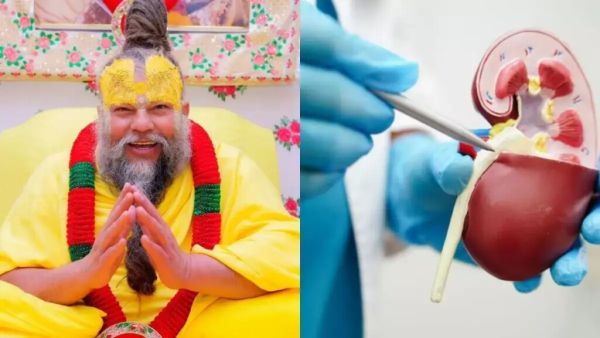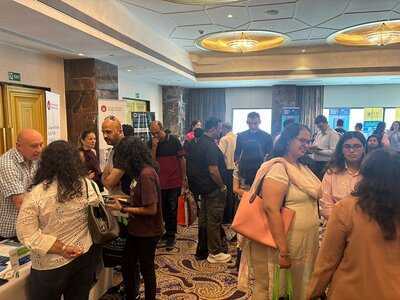
Shri Hit Premanand Govind Sharan Maharaj, also known as Premanand Maharaj, lives in Vrindavan and is an ardent devotee of Radha Rani. Due to his ill health for the last few days, his morning walk has been postponed indefinitely. Now, everyone is wondering what disease Premanand Maharaj is suffering from, due to which his health keeps deteriorating from time to time. In fact, Premanand Maharaj has repeatedly said in his sermons that both his kidneys have failed and he has to undergo dialysis daily. In 2006, he complained of stomach ache and that’s when he was diagnosed with the disease. Premanand Maharaj is suffering from a serious kidney disease called Polycystic Kidney Disease (PKD). In this article, polycystic kidney disease, its causes, symptoms and treatment will be discussed.
What is polycystic kidney disease?
Polycystic kidney disease is a genetic disorder caused by gene mutations. This causes cysts to form in the kidneys, leading to high blood pressure and kidney failure. Most people with PKD require dialysis or a kidney transplant. PKD causes chronic kidney disease, which can eventually lead to kidney failure. Most people with PKD require dialysis or a kidney transplant. Cysts caused by PKD can enlarge your kidneys and prevent them from filtering wastes from the blood. In severe cases, these cysts can increase the weight of your kidneys by up to 13 kg.
Types of polycystic kidney disease
ADPKD is the most common type of PKD and occurs in people between the ages of 30 and 50. In some cases, this may also occur in childhood or adolescence. You may be more likely to have this type of PKD if one of your parents has the disease. People with ADPKD have mutations in the PKD1 or PKD2 gene. ARPKD is a rare form of PKD, also known as neonatal PKD. It causes abnormal growth of the kidneys during fetal development. Doctors often treat ARPKD in the fetus during pregnancy or soon after birth. To be infected with this type of PKD, a parent must have the PKHD1 gene mutation, which then passes the disease on to the child.
Symptoms of Polycystic Kidney Disease
Symptoms of ADPKD include back or side pain, high blood pressure, headache, hematuria (blood in the urine), UTI, and kidney stones. Symptoms of ARPKD include low birth weight, swollen abdomen, high blood pressure at birth, breathing problems, frequent UTIs, and pain in the stomach or lower back.
Treatment of polycystic kidney disease
A nephrologist can usually diagnose and treat PKD. Kidney ultrasound, prenatal ultrasound, CT scan, and MRI can diagnose this condition. Although there is no cure for PKD, the goal of treatment is to slow the progression of the disease and control symptoms.
Control blood pressure: Doctors always recommend keeping your blood pressure low through diet, exercise and medicines. Keeping your blood pressure under control can reduce your risk of heart disease, stroke, and PKD symptoms.
Dialysis: If your kidneys have failed, you may need dialysis. Hemodialysis uses a machine to filter blood outside the body. Peritoneal dialysis uses the lining of your stomach and a special fluid to filter your blood.
Kidney transplant: If ADPKD causes kidney failure, you may need a kidney transplant. Transplantation is a surgery in which the damaged kidney is replaced with a donor kidney.
Pain relievers: Medications can control pain caused by infection, kidney stones, or a ruptured cyst. Your doctor may prescribe painkillers. However, you should avoid taking medicines in such a situation, as it may worsen the condition.
What do experts say?
Experts say that polycystic kidney disease cannot be prevented, but a healthy lifestyle can slow down the disease and prevent kidney failure. Get daily exercise, avoid stress, maintain a healthy weight, keep your blood pressure under control, quit smoking or using tobacco, and avoid alcoholic beverages. These changes may help prolong life with PKD.
-
Strictly Come Dancing star issues statement as they're booted off BBC show

-
Major betting chain 'may close up to 200 shops' as Rachel Reeves' budget looms

-
Kemi Badenoch demands Keir Starmer appears before MPs over China spy scandal

-
BBC viewers 'switch off' as Happy Valley creator's latest show branded 'depressing'

-
Ireland Education Roadshow 2025 Concludes Successfully In Mumbai, Attracts Over 350 Students & Parents
